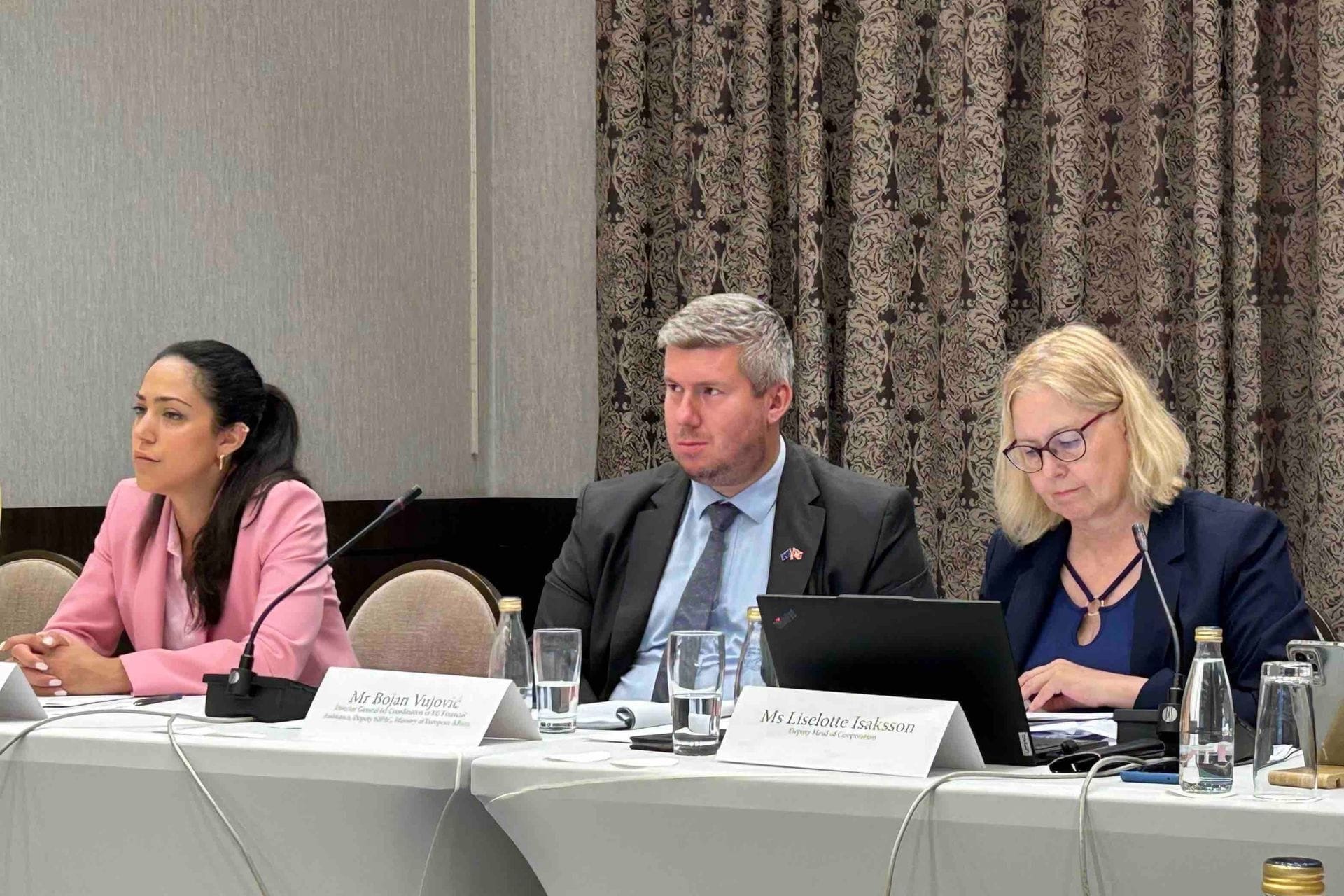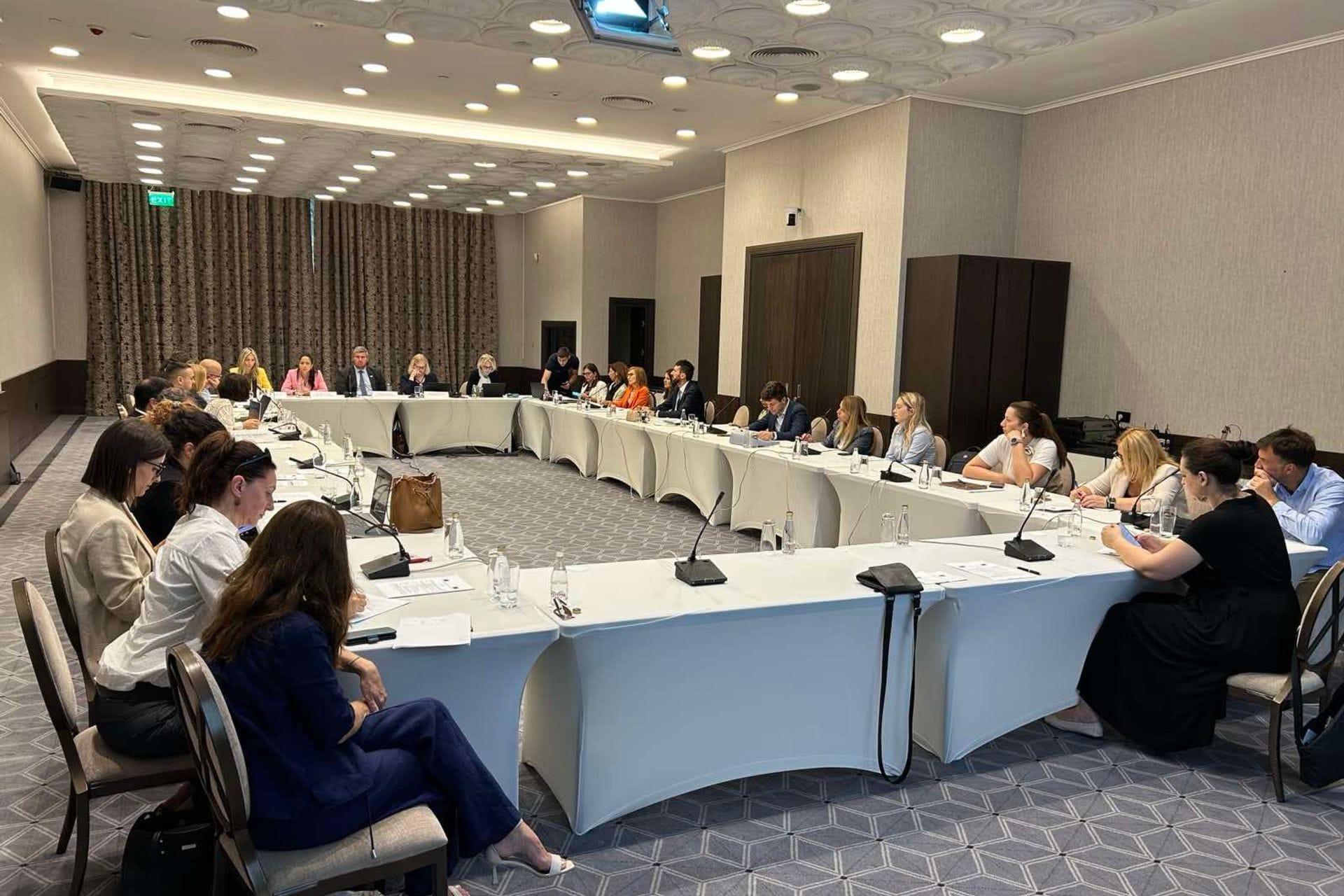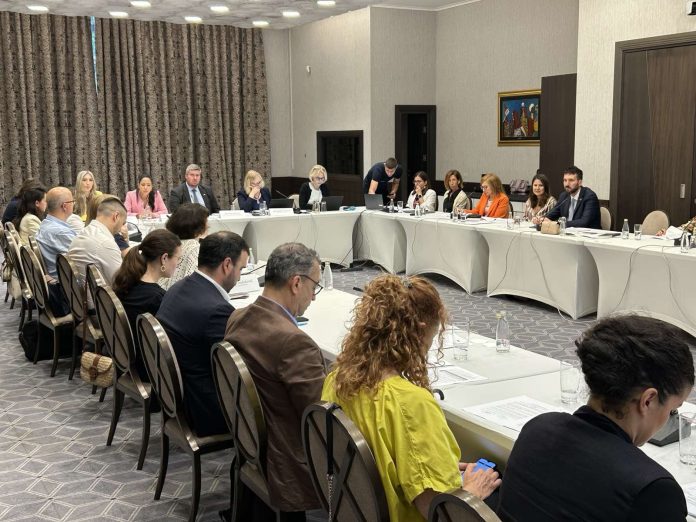The Sectoral Monitoring Committee for the Instrument for Pre-Accession Assistance (IPA) met on July 9–10, 2025, bringing together representatives of Montenegrin institutions, IPA fund beneficiaries, and EU Commission partners. The meeting aimed to assess progress, guide reform processes, and plan next steps for reforms funded by EU support.
The discussions focused on key IPA-supported sectors, including rule of law, public administration reform, energy, environmental protection, transport, trade, education, employment, social protection, innovation, agriculture, and rural development. Participants also reviewed legal, institutional, and operational prerequisites critical for effective and sustainable implementation of EU-funded programs.
The meeting was opened by Bojan Vujović, Director-General of the Directorate for Coordination of EU Financial Support in the Ministry of European Affairs, Milica Adžić, State Secretary in the Ministry of Finance and National Authorizing Officer, and Liselotte Isaksson, Deputy Head of Cooperation at the EU Delegation in Montenegro, who reiterated the EU’s continuous support for Montenegro’s reforms.

Over a seven-year period, from 2014 to 2020 (IPA II perspective), the European Commission allocated approximately EUR 116 million in non-repayable assistance from IPA funds to Montenegro, covering a wide range of sectors. Many programs and projects supported by these funds are still in the implementation phase. During the meeting, significant progress in their implementation was highlighted, which has also commenced under the IPA III perspective (2021–2027), with a total EU funds allocation of approximately EUR 105 million.
During the two-day meeting, attention was also given to monitoring the implementation of Montenegro’s Reform Agenda, which represents a structured set of political, legal, and institutional reforms carried out within the EU accession process. This Agenda is supported with a total of EUR 383.5 million (EUR 110 million in grants and EUR 273.5 million in concessional loans) and constitutes substantial support for the state budget, public administration, and citizens of Montenegro. The meeting participants assessed the pace of implementation of the 32 key reforms envisaged in the Agenda. The discussion provided an opportunity to highlight the progress achieved, as well as to identify areas requiring additional efforts and acceleration of the process.

In the coming years, Montenegro’s institutions will focus on the efficient use of available funds, which will contribute to speeding up reforms, aligning with EU standards, and further advancing Montenegro towards EU membership. It was emphasized that the key to success will lie in the timely identification of areas for improvement and the continuous strengthening of institutional and human capacities, in order to ensure readiness for managing EU structural and cohesion funds after accession.


